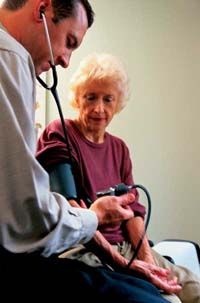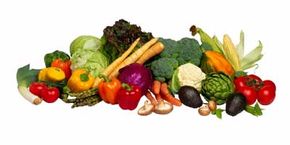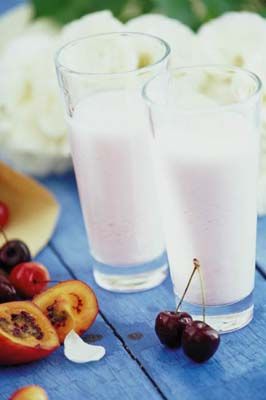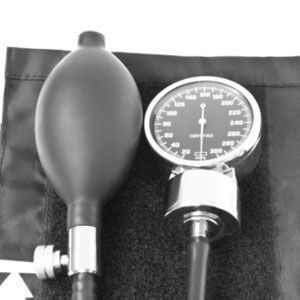Sometimes what you don't know can hurt you. Such is the case with high blood pressure, or hypertension. Although one in four adults has high blood pressure, according to the American Heart Association (AHA), almost a third of them don't know they have it.
That's because high blood pressure often has no symptoms. It's not as if you feel the pressure of your blood coursing through your circulatory system. When the heart beats, it pumps blood to the arteries, creating pressure within them. That pressure can be normal or it can be excessive. High blood pressure is defined as a persistently elevated pressure of blood within the arteries.
Advertisement
Over time, the excessive force exerted against the arteries damages and scars them. It can also damage organs, such as the heart, kidneys, and brain. High blood pressure can lead to strokes, blindness, kidney failure, and heart failure.
In 90 to 95 percent of all cases, the cause of high blood pressure isn't known. In such cases, when there is no underlying cause, the disease is known as primary, or essential, hypertension. Sometimes the high blood pressure is caused by another disease, such as an endocrine disorder. In such cases the disease is called secondary hypertension.
Who's at Risk?
While no one knows the exact cause of hypertension, there are specific factors that put you at risk of developing it. These include:
Age. The older you are, the greater the likelihood of developing hypertension.
Weight. The heavier you are, the greater your risk of hypertension.
Race. African Americans are more prone to high blood pressure than Caucasians.
Heredity. If high blood pressure runs in your family, you have an increased chance of developing it.
Cigarette smoking. Smoking causes hypertension as well as heart disease and cancer.
Alcohol use. Heavy drinking increases blood pressure.
Sodium consumption. Too much salt in your diet will do you in if you're sodium sensitive.
A sedentary lifestyle. Couch potatoes are at an increased risk for hypertension.
Pregnancy. Some expectant mothers experience elevated blood pressure.
Oral contraceptives. Some women who take birth control pills develop hypertension, especially if other risk factors are also present.
What to Look For
Hypertension is known as "the silent killer" because it has no or few obvious symptoms. The symptoms that it does present are shared by other diseases and conditions. But if you have any of these symptoms, be sure to have your blood pressure checked to rule out high blood pressure:
- Frequent or severe headaches
- Unexplained fatigue
- Dizziness
- Flushing of the face
- Ringing in the ears
- Thumping in the chest
- Frequent nosebleeds
Diagnosis
Finding out whether you have high blood pressure is simple. You just need to have your blood pressure checked by a doctor, nurse, or other health professional. Oftentimes you can even find blood pressure check booths at your local mall or at the pharmacy. The blood pressure test is simple, quick, and painless, but the results can save your life.
A blood pressure reading is given in two numbers, one over the other. The higher (systolic) number represents the pressure while the heart is beating, indicating how hard your heart has to beat to get that blood moving. The lower (diastolic) number represents the pressure when the heart is resting between beats.
Blood pressure of less than 140 (systolic) over 90 (diastolic) is considered a normal reading for adults, according to the AHA, while a reading equal to or greater than 140 over 90 is considered elevated (high). A systolic pressure of 130 to 139 or a diastolic pressure of 85 to 89 needs to be watched carefully.
The key to controlling high blood pressure is knowing you have it. Under the guidance of a physician, you can battle hypertension through diet, exercise, lifestyle changes, and medication, if necessary. The kitchen holds several remedies to help you with your blood pressure -- keep reading to learn more.
For more information about battling heart problems, visit the following links:
- To see all of our home remedies and the conditions they treat, go to our main Home Remedies page.
- High blood pressure is one aspect of heart disease -- the number one killer of Americans. Learn how to control your blood pressure with hers in Herbal Remedies for High Blood Pressure.
- Learn about cures you can use at home to improve the health of your ticker in Home Remedies for Heart Disease.
- If your cholesterol numbers are higher than you (and your doctor) would like, visit Home Remedies for High Cholesterol.
- To learn more about the science behind heart attacks, read How Heart Disease Works.
This information is solely for informational purposes. IT IS NOT INTENDED TO PROVIDE MEDICAL ADVICE. Neither the Editors of Consumer Guide (R), Publications International, Ltd., the author nor publisher take responsibility for any possible consequences from any treatment, procedure, exercise, dietary modification, action or application of medication which results from reading or following the information contained in this information. The publication of this information does not constitute the practice of medicine, and this information does not replace the advice of your physician or other health care provider. Before undertaking any course of treatment, the reader must seek the advice of their physician or other health care provider.
Advertisement




